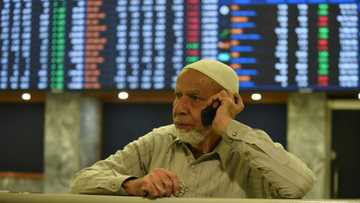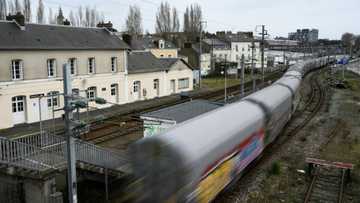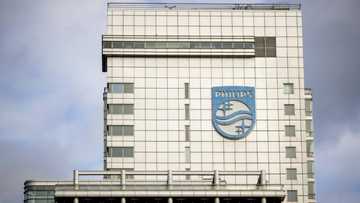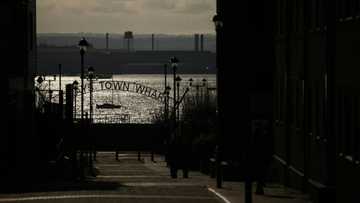Brexit gloom prevails on UK's three-year anniversary

Source: AFP
PAY ATTENTION: Click “See First” under the “Following” tab to see Legit.ng News on your Facebook News Feed!
British Prime Minister Rishi Sunak defended Brexit as a "huge opportunity" on Tuesday, as the UK marked three years since leaving the EU amid economic crisis and a growing public sense of "Bregret".
On January 31, 2020, the United Kingdom ended 47 years of belonging to the European Union and its predecessor, the EEC, soon after Boris Johnson won a resounding election victory for the Conservatives with his promise to "get Brexit done".
An Ipsos poll last week found 45 percent of people in Britain think Brexit is going worse than they expected.
"In the three years since leaving the EU, we've made huge strides in harnessing the freedoms unlocked by Brexit to tackle generational challenges," Sunak said in a statement released for the anniversary.
"I'm determined to ensure the benefits of Brexit continue to empower communities and businesses right across the country," the prime minister said.
Sunak called Brexit a "huge opportunity to deliver" on his priorities of growth, employment and social mobility.
PAY ATTENTION: Subscribe to Digital Talk newsletter to receive must-know business stories and succeed BIG!
The prime minister -- who will also mark 100 days in office this week -- said the UK had "forged a path as an independent nation with confidence" and "that momentum hasn't slowed".
He said this included Europe's fastest vaccine rollout, trade deals with 70 countries and "taking back control of our borders".
The statement came as Sunak faces numerous challenges, with thousands of UK workers taking strike action over pay that has been outpaced by soaring inflation.
'Growing Bregret'
The cost-of-living crisis has hit millions and inflation has soared above 10 percent.
While saving the over-stretched state-funded health service (NHS) was a keystone of the Brexit campaign, NHS workers including nurses and ambulance staff are now striking over pay and working conditions.
Brexit, which was in part a backlash against the free movement of people and goods across the EU, has led to restrictions that have hit food supplies to the UK and made it harder to hire foreign workers.
Yet the numbers of migrants making the dangerous Channel crossing to claim asylum in the UK reached a record level of 45,000 last year.
The UK has also seen a period of political instability, with three prime ministers last year.
Sunak did not mention the problems in Northern Ireland surrounding post-Brexit trading agreements that have led to months of negotiations between London and Brussels and paralysed self-government in Belfast.
There are no celebrations planned to mark the anniversary and in Scotland, where most voted to stay in the EU, opponents planned a torchlit procession through Edinburgh.
"Today's Brexit anniversary marks three years of political mayhem and economic calamity," a columnist wrote in left-wing broadsheet The Guardian.
Even right-wing broadsheet The Sunday Telegraph wrote there was "a growing sense of 'Bregret' taking hold in Britain", questioning: "Is there really much cause for celebration?"
Economic woes
A study by Bloomberg Economics published on Tuesday said: "Brexit is costing the UK economy 100 billion pounds a year ($124 billion), with the effects spanning everything from business investment to the ability of companies to hire workers."
The Office of Budget Responsibility predicts that the new trading relationship between the EU and UK will reduce long-term productivity by four percent, as compared to staying in the EU.
Nevertheless, even the opposition in parliament is not calling for Brexit to be reversed.
Keir Starmer, the leader of the main opposition Labour Party, which is riding high in the polls, has vowed to reconnect with Europe but ruled out taking the UK back into the European Union or its single market.
The IMF significantly downgraded its UK growth forecast on Monday, predicting its economy would contract by 0.6 percent this year. Britain looks set to suffer more than most from soaring inflation and higher interest rates.
In a jargon-heavy statement, Sunak said progress had been made in "a range of key growth areas".
He cited economic reforms including the opening of free ports that exist outside normal tax and customs territory, as well as regulatory reforms to the financial sector.
Sunak also included a bill going through parliament to scrap all the EU laws automatically retained post-Brexit.
The bill has provoked a backlash in Britain, with many public and private interest groups and organisations accusing the government of moving too far, too fast.
Source: AFP






